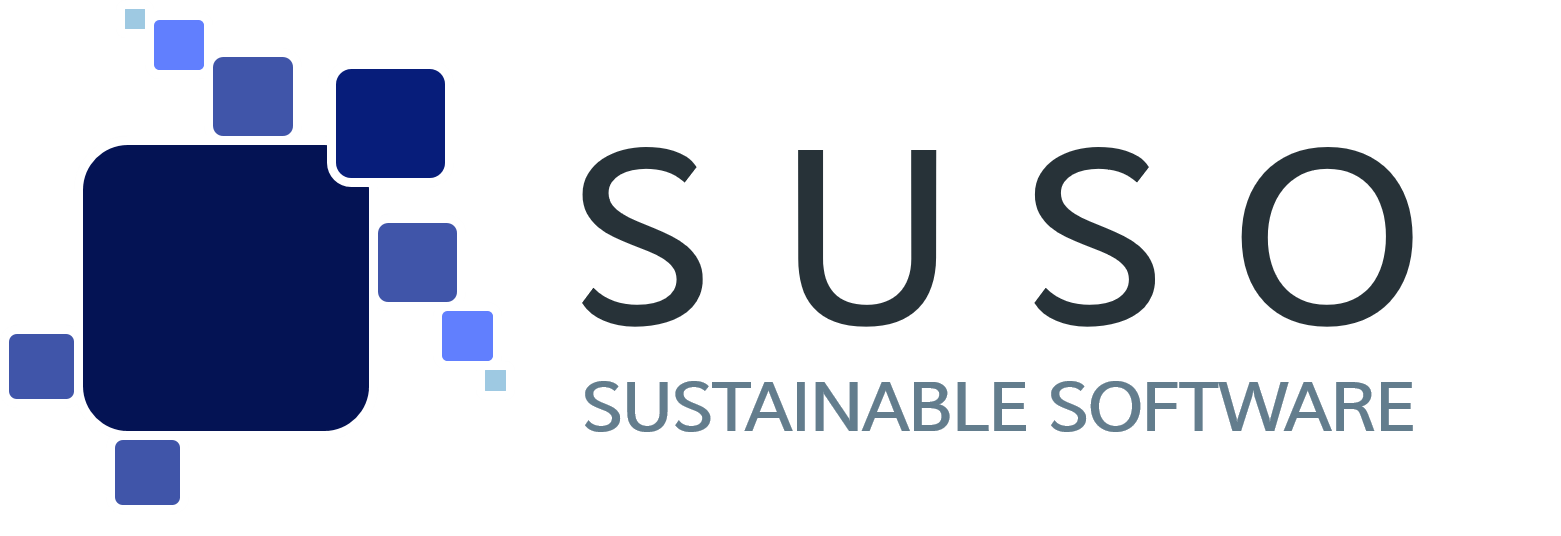AI and Ethics: Sustainability as a central factor
In recent years, Artificial Intelligence (AI) has become an important tool for companies and organizations to improve their business processes and develop innovative solutions. However, ethical aspects such as transparency, fairness and data protection are often neglected in the process. Especially in the context of sustainability, however, these aspects can have a decisive influence. After all, sustainability is not only about preserving the environment, but also about social and economic aspects.
How are AI and ethics related?
The development of artificial intelligence (AI) is an important part of the digital transformation in all areas of business and society. However, the proliferation of AI technologies also raises ethical issues that are of great importance for sustainability. Ethics refers to moral principles and values that guide human behavior. AI development is about integrating these moral principles into the use of AI systems.
- One example of an ethical issue in energy efficiency is the use of smart home systems. Here, the question arises as to who has access to the data collected and how it may be used.
- In transportation, the question is whether autonomous vehicles are capable of making moral decisions when it comes to potentially fatal accidents.
- In agriculture, AI systems can be used to optimize crop yields. But the question is whether maximizing yields increases environmental impact or whether ecological factors should also be taken into account.
In all these applications, it is important that we consider ethical principles and values.
Use our tools for sustainable software
Our three tools help you acquire the knowledge, skills, and financial resources you need to develop sustainable software products and services that meet social, environmental, and economic needs. By using these tools, you can position yourself as a leader in sustainable software development and help create a better future for all.
AI development and aspects of ethics
More and more companies and organizations are turning to AI to optimize business processes, create innovations, and offer new products and services. But AI development is associated with numerous ethical issues. In this section, we turn to the most important ethical aspects of AI development.
Accountability and transparency in AI development are critical to gaining the trust of users. AI systems must be developed to be accountable and make understandable decisions. This also means that responsibility for the use of AI must be clearly defined and communicated.
Fairness and equity in the use of AI are also important ethical aspects. We should develop AI systems in such a way that they are treated equally for all users. This also means avoiding discrimination and unequal treatment. An example of an ethical issue related to fairness and justice is the use of AI in applicant selection. AI systems can adopt developers’ unconscious biases, leading to discriminatory decisions.
Privacy and data protection in AI use is also an important ethical consideration. AI systems should protect personal data and use it only for its intended purpose. Users must be informed about the use of their data and be able to give their consent. Data protection regulations and laws must be observed.
Another ethical aspect of AI development is the avoidance of discrimination and bias in AI applications. AI systems can adopt developers’ biases and stereotypes, leading to discriminatory decisions. An example of this is the use of AI in lending. When AI systems make unfair decisions based on biases or stereotypes, this can lead to discrimination and disadvantage.
Regulatory approaches to promote ethics in AI development.
AI development has an impact on various areas of society and therefore cannot take place without taking ethical aspects into account. It is important that the development and use of AI technology is done responsibly and transparently to prevent potential harm and abuse. In this context, there are already existing regulatory mechanisms and guidelines on ethical AI development.
For years, the European Union has been debating what rules should be in place to deal with AI. However, “when the people’s representatives had already tabled a total of around 3300 amendments, the hype around the voice robot ChatGPT was just getting started.” (German Source: ChatGPT, Predictive Policing & Co.: Dispute over Red Lines in EU AI Regulation) Politics and society are lagging behind the technology.
There are several reasons why it can be difficult to implement regulations for emerging technologies. One of the main reasons is that change is rapid and complex. New technologies can enter the market quickly and unpredictably. In addition, it can be difficult to predict their impact on society and the environment. This makes it difficult to develop regulations that can keep pace with these changes.
Another factor is that innovativeness and risk aversion are often incompatible. Companies that develop new technologies often want to get to market quickly and offer their products and services to gain an advantage over their competitors. At the same time, however, new technologies can bring risks and negative impacts that we need to consider. Regulations can help to minimize these risks, but they can also inhibit innovation and make companies less competitive.
Value Sensitive Design as an approach to integrating sustainability and ethics into AI development

The concept of Value Sensitive Design (VSD) originates from the work of Batya Friedman et al. It is based on the idea that technology is not a neutral tool, but is associated with certain values and norms. VSD sets out to integrate these values and norms into the design process of technology. In this way, the goal is to ensure that technology respects and supports the values and needs of users and society.
The application of VSD requires a systematic analysis of the values and needs of all stakeholders involved. This includes critical reflection on the potential impact of the technology on privacy, equity, autonomy, and other aspects of human well-being. The goal is to create a design that respects and promotes these values and needs. And not at the expense of users or society.
VSD has found application in various areas of technology in recent years, including AI development. VSD-based AI development would require critical reflection on the values and needs of all stakeholders involved and the development of AI systems that respect those values and needs. This could help increase acceptance and trust in AI systems. As well as ensure that these systems make a positive contribution to sustainability.
AlgorithmWatch: An approach to monitoring algorithms
An important aspect of promoting ethical AI development is the monitoring of algorithms and their applications to detect and prevent potential violations of ethical standards. One approach to monitoring algorithms is being taken by the German initiative AlgorithmWatch.
AlgorithmWatch was founded in 2018 by a team of journalists and technology experts to research and make transparent the impact of algorithms on society. The organization collects information about the use of algorithms in various fields. For example, the labor market, health care and policing. It then assesses their impact on ethical standards such as privacy, fairness and discrimination.
AlgorithmWatch’s central area of action is the study of algorithms used by job boards and personnel selection tools to evaluate potential candidates for open positions. AlgorithmWatch has shown that many of these algorithms are biased against certain populations, potentially discriminating against job applicants.
AlgorithmWatch regularly publishes reports and analysis on the impact of algorithms on society. In doing so, it advocates for transparent and responsible applications of AI. Through the work of organizations like AlgorithmWatch, regulators and companies can identify potential ethical risks and take action to minimize those risks.
Best practices for integrating ethics into AI development.
- Stakeholder involvement: When developing AI systems, involve all relevant stakeholders to ensure that environmental and social impacts are considered. This includes, for example, civil society representatives, academics, industry experts, and regulators.
- Use transparent data and algorithms: Using transparent data and algorithms is an important step in promoting sustainability in AI development. By doing so, you can ensure that decision-making in systems is understandable and fair. This is where you should take a look at open source.
- Consider the entire lifecycle: It is important that you consider the entire lifecycle of AI systems, including their manufacture, use and disposal. Measures such as using recyclable materials, reducing energy consumption, and disposing of them in an environmentally sound manner can help.
- Promoting diversity and inclusion: Promoting diversity and inclusion is another important factor in integrating sustainability into AI development. This means that we should develop AI systems in such a way that they take into account the diversity of users and do not have discriminatory effects.
- Regular review and improvement: You should regularly review and improve AI systems to ensure they meet sustainability and ethics standards. This should include feedback from users and external assessments.
Examples of software companies that integrate ethics into their projects
More and more software companies are actively addressing ethical aspects and integrating them into their projects. Here are three prominent examples:
- Google – AI Principles: Google has published a set of AI principles to guide the development and use of AI. These principles include accountability, privacy, and transparency.
- Microsoft – AI for Earth: Microsoft has launched the AI for Earth program to put technology at the service of environmental protection. The program helps organizations and researchers use AI to solve environmental problems.
- IBM – AI Fairness 360: IBM has developed the “AI Fairness 360” toolkit to help ensure AI applications are fair and unbiased. The toolkit provides a set of tools and methods for reviewing AI applications for fairness and equity.
These examples show that it is possible to integrate ethical aspects into the development of software and AI applications. It is an important step to ensure that technology is in line with our values and principles and helps to create a more sustainable future.





